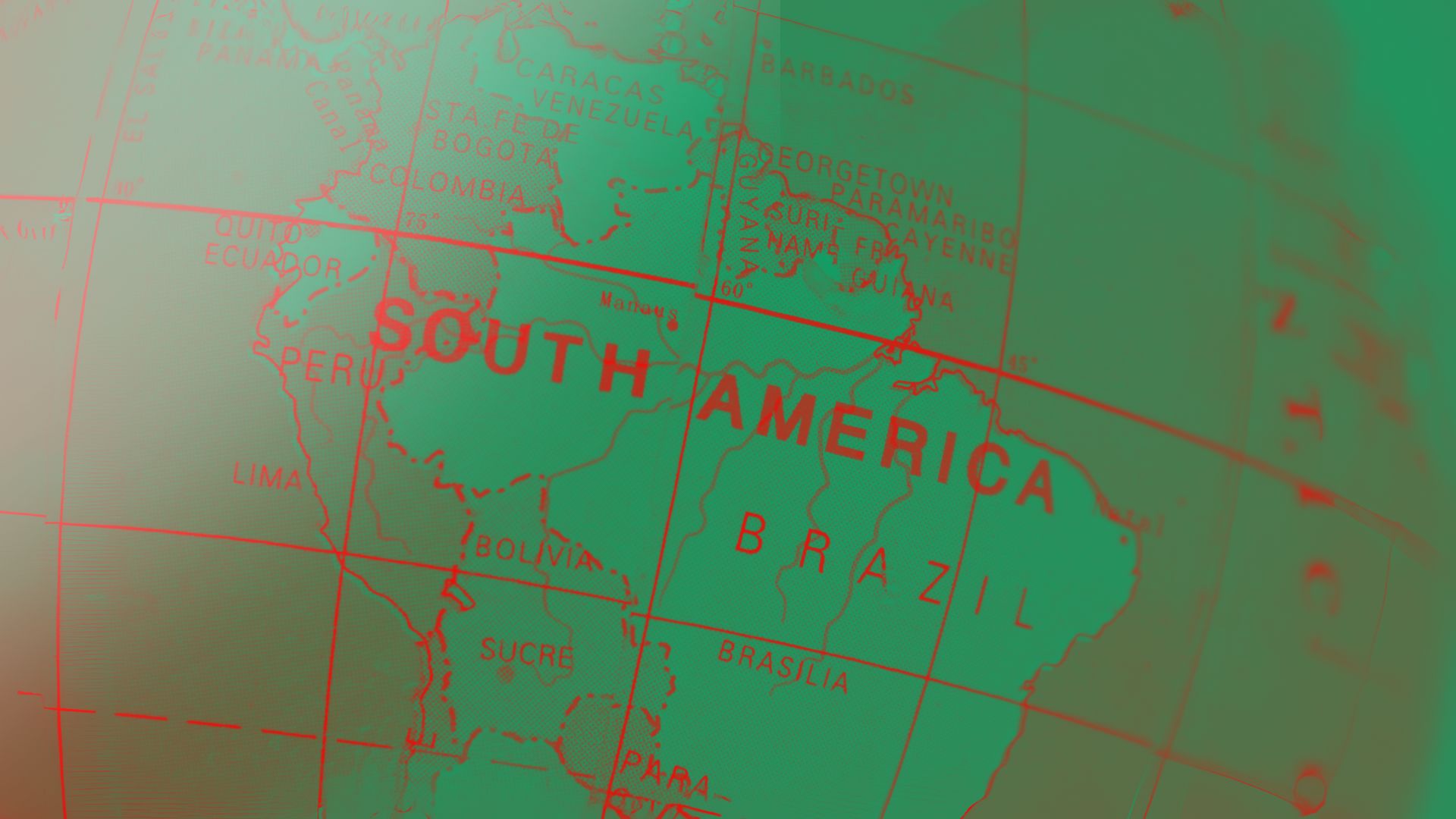Publications
INSS Insight No. 1885, August 7, 2024
In recent years, Iran has expanded its political, military, and economic foothold in Latin America in an effort to utilize to its advantage the political changes in the region, especially the rise to power of left-wing parties. Without the coordinated activity of the United States and its allies in Latin America, the spread of Iranian influence in the continent could reach levels that would threaten Israel’s fundamental interests in the region.
The public disagreement between Iran and Argentina over the latter’s decision to outlaw Hamas, while highlighting the terror organization’s ties with the Islamic Republic, should not come as a shock to anyone. The government of President Javier Milei is an ardent ally of both the United States and Israel, and, moreover, Argentina is familiar with the damage that Iranian terror can cause. Indeed, the Argentinean government still holds Iran accountable for the attacks in 1992 on the Israeli embassy in Buenos Aires and the Jewish community center in the capital city in 1994. But, in total contrast to previous governments, the current regime is willing to stand up to Iran and its axis of resistance. Argentina is no longer willing to sweep the problem under the rug. This is not just a decision about Hamas; Argentina is also trying to secure the extradition of Iranian Interior Minister Ahmad Vahidi, who has been accused of participating in those attacks 30 years ago, as part of the Milei administration’s comprehensive efforts to bring those responsible to justice.
An analysis of the relationship that Iran enjoys with many Latin American countries highlights how different Argentinian policy vis-à-vis Tehran is and, indeed, its uniqueness. Iran has significantly intensified its operations in Central and South America, especially since the start of the so-called Pink Tide in that region, and an increasing number of countries have opted for closer relations with the Islamic Republic. Tehran has identified countries where left-wing parties have been voted into power as countries it can work with to limit the influence of the United States and undermine Israeli efforts to expand its political and military sway in the region.
This fact squares with Iran’s broader approach, whereby it is willing to cooperate with anyone who is open to joining forces in opposition to Western influence anywhere in the world. This is why Iran, a theocratic regime—a state in which Shiite Islam is the supreme value—is willing to cooperate with secular and even Marxist regimes in which religion plays absolutely no role. Moreover, from an Iranian perspective, the struggle of Latin American states to liberate themselves from the “foreign occupation” by the West is similar to its own struggle against the West. They are, therefore, like-minded states, with whom Iran has much in common.

In concrete terms, Iran is investing diplomatic and military efforts in a number of key countries in Latin America, primarily Venezuela, which Tehran views as the hub of its activities on the continent. In addition to diplomatic activity, relations between Tehran and Caracas also include widespread security cooperation, based on the substantial military aid—drones and warships—that Iran provides to Venezuela.
Venezuela is not the only country in Latin America on which Iran has bestowed its generosity. Bolivia is also considered a “rising state” in terms of Iranian influence over its government. In July 2023, Iran and Bolivia signed an agreement whereby Tehran would not only sell reconnaissance drones and river boats to the Bolivian regime but would also cooperate on techniques related to cybersecurity and conduct joint military training exercises. This highlights the extent of the cooperative relationship developing between Tehran and La Paz, which the current Bolivian government is keen to expand further. In addition, Iran continues to strengthen its ties with Nicaragua as well as Colombia, where it hopes to take advantage of the regime of President Gustavo Petro, who is considered a vocal and persistent critic of Western influence in his country and who is also working to expand cooperation with Cuba, especially on technological and economic matters.
Above all, Tehran is keen to upgrade its relations with Brazil, which it views as the key country in Latin America. As far as the regime in Tehran is concerned, the election of Luiz Inácio Lula da Silva as president is a dramatic shift in Brazilian policy, which manifested itself in the Islamic Republic joining BRICS, the alliance of major developing countries, in January 2024. From an Iranian perspective, this is a unique opportunity to get a foothold in a key country from an economic perspective and in terms of political influence. At the same time, Iran wants to expand its control and influence over the hundreds of thousands of Shiite Muslims who live throughout Brazil. The fact that Brazil allowed two Iranian warships to dock in Rio de Janeiro last year was further proof of the change in Brazil’s attitude toward Iran and the warming of relations between the two countries.
Beyond the economic and political advantages that Iran can gain from strengthening these ties, the Iranian-backed terror plots uncovered recently in Peru and Brazil and the widespread Iranian use of Bolivian passports indicate that Tehran—either directly or via the foothold that Hezbollah has in the region—also seeks to use its presence in Latin America for operative purposes and to plan terror attacks, safe in the knowledge that the regimes in these countries are friendly to the Iranian agenda.
The fact that Ebrahim Raisi, Iran’s president until his death in 2024, visited Venezuela, Nicaragua, and Cuba in 2023 confirmed the great importance that Iran places on Latin America as part of its efforts to bolster ties with countries in the Global South, thereby smashing the political isolation to which it has been subjected. Raisi’s death is not expected to change this Iranian policy, since the newly elected president, Masoud Pezeshkian, has already declared that he will continue to pursue the same policy as Raisi.
Against the backdrop of this worrying pattern, which comes at a time when China and Russia are also trying to take advantage of the vacuum and tighten their footholds in Latin America, the West’s lack of response—including the United States—is glaring. It appears that the US administration is preoccupied, especially since the start of Operation Swords of Iron (the Israel–Hamas war), in efforts to prevent the outbreak of an all-out war in the Middle East and is far less attentive to what is happening in its own backyard, especially the damage being done to American influence in Latin America.
Notwithstanding the Pink Tide that has swept over Latin America, it is worth noting that in a number of countries, including Argentina, Ecuador, and Guatemala, pro-Western regimes have remained in power or been voted into office. These countries can be a base for operations to counter Iran’s growing influence in the region. They are operating on the understanding that Iran and the countries that it supports pose a genuine threat to every country that has strategic cooperation with the United States, so any increase in Iranian activity is seen as direct threat to them.
In the Israeli context, it is obvious that efforts to increase pressure on the regime in Tehran cannot focus exclusively on the Middle East and that it is also necessary to increase pressure on Iran by thwarting its ambitions to become a major influence—politically and militarily—in those countries in the Global South, especially in Africa and Latin America. To this end, the State of Israel must strengthen its own ties with those countries that oppose Iran. To whatever extent is possible, it must provide them with military and political assistance to help them deal with Iran and with Hezbollah, which is intensely active in Latin America, under Iranian guidance, in drug smuggling and recruiting locals to carry out terror attacks.
Above all, Israel must work in close cooperation with the American administration to execute an ordered plan to curtail Iranian activity in Latin America. The influence and presence of the United States in this region must be used as a platform for launching such a plan of action.
The bottom line is that ignoring Iranian activity in Latin America endangers not only Israel’s interests but could also lead to more countries being asked to sever diplomatic and economic ties with Israel, under pressure from Iran and its other allies. In addition, Iran also poses a very real threat to those few countries in the region that still support Israel. Without a broad strategy to curb Iranian activity in Latin America, and without cooperation and coordination with the Americans and others, Iran’s foothold in the region will only continue to expand.



